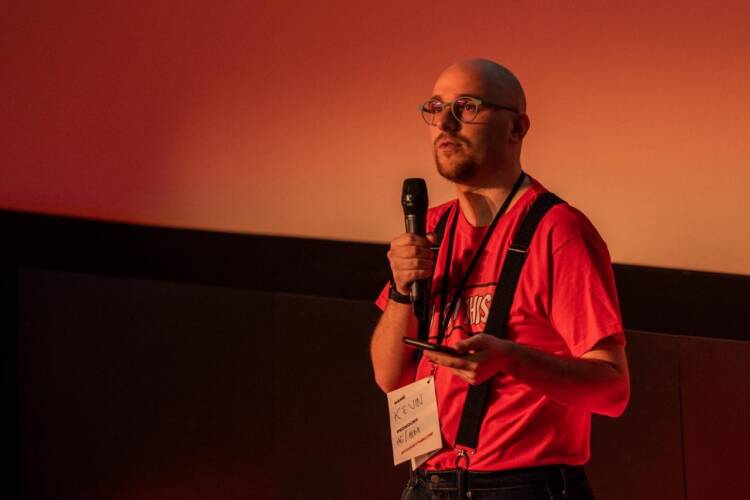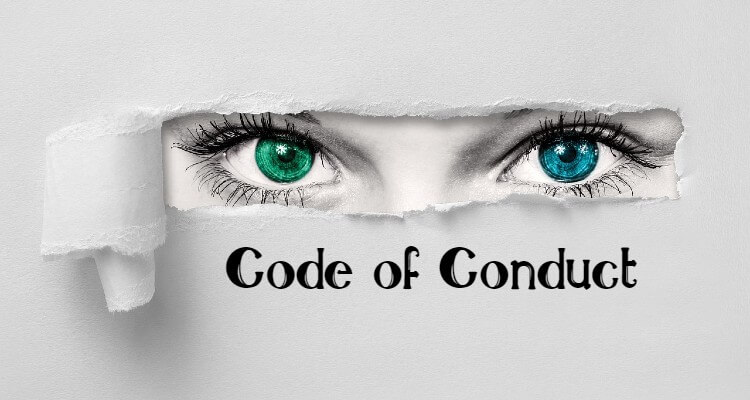Tech Conference Organizers: Sex Tech Breaks Taboos, Not Codes of Conduct
An exploration into the place of erotic technologies at mainstream events.

Technology conferences aren’t exactly known for their diversity.
While most conversations around their lack of diversity focus on speakers or audience demographics, this slowness to go beyond the status quo is also reflected in the topics presented.
Despite technology being incredibly intersectional, the topics tend to veer towards technical intricacies, such as programming language syntax and optimizing application performance.
One topic commonly left out of the program? Sex.
Why aren’t sex-related topics shown in mainstream spaces?
A potential reason is that many organizers are risk-averse.
“Certain topics come with more work. This includes politics, religion, gun control, and yes, sex,” explains Kevin Lewis, who organizes developer events such as the You Got This conference series and formerly Goldsmiths’ Sex Tech Hack.
[These topics are] more polarizing, which leads to perhaps conversations that will not be productive. Then the organizers, ultimately, are going to have to pick up the work… It’s just easier to leave it out, unfortunately.
Another cause could be that organizers aren’t receiving talks on these subjects.
“One of the reasons I think we don’t see a lot of sex-positive tech talks being shown… or even just generally a lot of nuanced conversations around sex and technology is potentially because [organizers] aren’t receiving talks related to that,” says researcher Caroline Sinders.
Earlier this year, Sinders published a report for the Ford Foundation on community health and harassment mitigation in JavaScript communities. She interviewed over 40 event organizers across Japan, India, Colombia, Germany, the United States, and other locations.
It could be that this is a chicken or an egg problem. People aren’t submitting sex tech talks because they aren’t seeing them. Then organizers aren’t receiving them because people aren’t submitting them.
Even when sex-related technical talks are accepted for a conference, this concern from organizers can be reflected in the format speakers are given to present. This was the case for software engineer Michaela Lehr, who has a talk about connecting the Web Bluetooth API and Web Audio API to her vibrator.
“When I applied to talk in Kyiv, they took another topic for the ‘real’ talk and then asked if I could give the vibrator talk additionally as a lightning talk,” she recalls.
Lehr thought it related to the topic—her other talk was about virtual reality while these web APIs were experimental and niche. But after speaking with the organizers at the venue, she realized it was something else:
They said that they would have liked to have my vibrator talk as a longer talk, but were afraid of their audience’s reaction in the [question and answers] part after the longer talks. And since lightning talks don’t have [a questions and answers session], that was their solution.
“A bit sad because the audience was awesome and would have loved the longer talk,” she adds.
RELATED READ: How to Bring Sex Tech into Mainstream Spaces: A Guide for Conference Speakers
We need a more nuanced approach to how sex is addressed in Codes of Conduct

A conference’s Code of Conduct (CoC) is a set of standards that indicates how attendees should behave. This document, and how it’s enforced, can have a large impact on the event’s success and the psychological safety of its attendees. If executed well, it can help ease organizer stress when handling sensitive topics like sex.
The reality, however, is that most CoCs have very limited coverage of how to appropriately discuss sex—or don’t mention it at all.
“What I’ve seen when CoCs cover sex is that it’s usually in relationship to sexualized imagery,” says Sinders. “That’s coming from a very specific angle to try to counter or deter sexualized imagery that’s used to further misogynistic, racist, or toxic stereotypes.”
Part of the problem could be how CoCs are created and maintained.
While some organizers proactively improve their CoCs annually based on research findings or expert insight, Sinders found that a majority only make updates after an incident occurs that the initial CoC didn’t cover. If nothing happens to prompt a change, there never will be one.
One case where CoCs are updated is when someone joining the organizing team has experience dealing with a particular topic. But again, if no one new joins or holds that expertise—nothing happens.
“One thing I’ve noticed really tangentially anecdotally in some of my interviews with conference organizers is that they are not necessarily experts in social justice,” Sinders explains. “So I could see some organizers having a fear of being like well, we don’t know if we understand this topic well enough, we don’t know how to host a nuanced conversation around it so maybe let’s not include it.”
She continues: “If they were to receive a sex tech talk with an intersectional standpoint, that would probably prompt them to think about how you would revise a Code of Conduct in a way that now includes this more nuanced conversation around sex.”
It’s on the organizers to create a respectful environment for discussion
When it comes to creating a safe space for exploring sensitive topics, Lewis believes that this responsibility is on the organizer.
“[Creating a respectful environment] is definitely on the organizer,” he says. “You’re the person who is creating the space, inviting people into that space, keeping people safe and happy in that space.”
A lot needs to happen before we will see sex-related talks frequently featured at mainstream tech events. But for organizers interested in making strides, taking a critical look at your CoC and the resulting environment you’re cultivating is a great start.
Image source: YouGotThis, Serhii G.

















